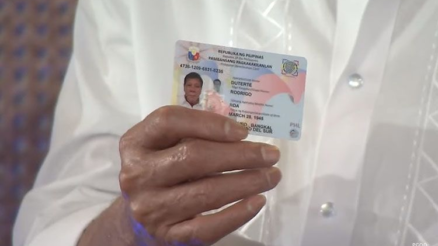The Philippines took a bold step into the digital age with the enactment of the SIM Card Registration Act, a law heralded as a potential game-changer in the fight against the rampant issue of mobile phone-related scams, particularly the insidious problem of online loan fraud. By mandating the registration of every SIM card with verifiable personal information, the legislation aimed to pierce the veil of anonymity that has long shielded malicious actors. The promise was clear: make it easier to trace, apprehend, and prosecute those who prey on unsuspecting individuals through their mobile devices.
Now, as 2026 unfolds and the implementation of this Act gains momentum, a critical question lingers in the digital air: will this landmark legislation truly be the silver bullet that eradicates the scourge of online loan scams? Or could it, despite its good intentions, morph into a double-edged sword, presenting unforeseen challenges and inadvertently opening up new avenues for exploitation by those who seek to deceive? 😈
This in-depth analysis will dissect the intended positive impact of the SIM Registration Act on the landscape of online loan scams. We will meticulously explore the anticipated benefits and the potential pitfalls that lie ahead. Furthermore, we will delve into the likely adaptive strategies that tech-savvy scammers might employ to navigate this evolving regulatory terrain. For Filipino borrowers venturing into the often-perilous waters of digital finance, understanding these intricate nuances is not just advisable – it’s absolutely essential for safeguarding their hard-earned money and peace of mind. 💰➡️🔒
The Beacon of Hope: Intended Impact on Anonymity and Traceability 🔦
At its core, the SIM Registration Act seeks to dismantle the very foundation upon which many online loan scams thrive: the cloak of anonymity provided by unregistered mobile numbers. By compelling users to link their SIM cards to their real identities, the law envisions a future where:
- Scammers Think Twice 🤔: The mere requirement of registration is expected to act as a significant deterrent. Individuals contemplating using mobile numbers for illicit activities, including orchestrating loan scams, will likely be more hesitant knowing their identities are now tied to their digital footprint. 👣🔗
- Investigations Gain Traction 🕵️♀️: When a scam tragically occurs, law enforcement agencies should find it considerably easier to trace the origin of fraudulent messages, calls, and online interactions. This enhanced traceability promises swifter and potentially more successful investigations, ultimately leading to more perpetrators facing justice. ⚖️
- The Reign of Spam Diminishes 🚫📧: A fully registered user base could logically lead to a substantial reduction in the deluge of unsolicited loan offers and insidious phishing attempts that flood our SMS inboxes daily – tactics frequently employed by scammers to lure in their victims. Less digital noise, more security! 🤫
- Accountability Takes Center Stage 🧍♀️➡️👤: By directly linking SIM cards to registered individuals, the Act aims to foster a greater sense of accountability for actions conducted through mobile devices. This could translate to a more responsible digital environment overall. 👍
In theory, the SIM Registration Act paints a promising picture, making it significantly riskier and more challenging for scammers to utilize anonymous mobile numbers to impersonate legitimate lenders, disseminate deceptive loan offers, or engage in harassment and threats during fabricated debt collection processes. This is a crucial step towards creating a safer digital lending ecosystem. 🌟
The Shadow of Doubt: Challenges and the Scammers’ Playbook 🎭
Despite the optimistic outlook, the SIM Registration Act is not a flawless shield against the dark arts of online loan scams. Several inherent challenges and the potential for unintended consequences loom large:
- The Enforcement Maze and Verification Labyrinth 🚧: Ensuring the accuracy and authenticity of the submitted registration information presents a formidable hurdle. Crafty scammers might resort to using counterfeit identification documents, exploiting stolen identities, or cleverly manipulating the registration process to circumvent the very safeguards the law intends to establish. The true efficacy of the Act hinges on the development and rigorous implementation of robust verification mechanisms and unwavering enforcement. 🔍
- The Paradox of “Registered” Scammers 🤯: In a twisted irony, the Act could inadvertently pave the way for a new breed of scammers who operate using legitimately registered SIM cards. These cards might be obtained through elaborate fraudulent schemes or by exploiting unforeseen loopholes in the registration process. The danger here lies in the fact that borrowers might be lulled into a false sense of security, becoming less suspicious of communication originating from a seemingly “verified” number. 🤔➡️😟
- The Perils of Data Privacy 🚨: The sheer volume of sensitive personal data amassed during the registration process inevitably creates a tempting target for malicious actors seeking to orchestrate large-scale data breaches. Should this information fall into the wrong hands, it could be exploited by scammers to launch even more sophisticated and highly targeted attacks, making the consequences far more devastating. 🔒➡️🔓
- The Technological Chess Game 📱➡️🌐: Scammers are often characterized by their technological agility and adaptability. As one door closes, they are quick to identify and exploit new avenues. They might increasingly explore alternative communication channels that fall outside the traditional realm of SMS and calls directly linked to SIM cards. This could include leveraging the anonymity and encryption offered by various social media platforms, end-to-end encrypted messaging applications, or even venturing into the less regulated territory of Voice over Internet Protocol (VoIP) services, which can be notoriously difficult to trace. 🌐
- The “Mule” Network: A Human Shield 🚶♀️➡️📞: Drawing a parallel from the world of money laundering, scammers might resort to recruiting individuals – often those in vulnerable or financially precarious situations – to register SIM cards on their behalf. This creates a deliberate layer of indirection, effectively obscuring the identity of the actual perpetrators and making the task of tracing them back to the crime significantly more complex. 👤➡️👤➡️📞
- Unintended Barriers for the Vulnerable 💔: While the Act is intended to protect all citizens, it could inadvertently create obstacles for vulnerable segments of the population who may lack the necessary forms of identification or the digital literacy required to navigate the registration process smoothly. This could unintentionally limit their access to legitimate online financial services, further marginalizing those who are already most at risk. 😥
The Scammers’ Next Moves: Anticipating the Evolving Threat 🔮
Historical patterns of criminal behavior strongly suggest that scammers are not passive entities; they are highly adaptive and resourceful. As the SIM Registration Act takes hold, it is highly probable that they will evolve their tactics in response:
- The Social Media Surge and Messaging App Infiltration 📱➡️💬: We can anticipate a potential shift in primary communication channels, with scammers increasingly leveraging the vast reach and relative anonymity offered by popular social media platforms and encrypted messaging applications where tracing the original sender can be significantly more challenging for authorities. 🗣️➡️🤫
- The Art of Deception: Enhanced Social Engineering 🎭🧠: Scammers might hone their social engineering skills even further, crafting increasingly believable narratives and employing psychological manipulation tactics to gain the trust of their victims. Their goal will be to extract sensitive personal information or induce victims to willingly transfer funds, regardless of the registration status of the SIM card used for initial contact. 🤥➡️💸
- The Phishing Frenzy and Fake Website Proliferation 🎣🌐: We might witness an intensification of phishing attacks and the creation of increasingly sophisticated fake loan websites designed to mimic legitimate financial institutions. These tactics allow scammers to directly steal login credentials and financial information, potentially bypassing the need for extensive SMS-based scams altogether. 🖱️➡️🔒
- Exploiting the Cracks: Loopholes in Registration 🕵️♂️🔍: Resourceful scammers will undoubtedly dedicate time and effort to identifying and exploiting any weaknesses or loopholes that may exist within the SIM card registration process. This could involve finding ways to register SIM cards using fraudulent information or enlisting proxies to register cards on their behalf. 🔓
- The Mask of Legitimacy: Impersonating Registered Entities 🏦📞: Scammers might become even more adept at impersonating registered digital banks or established lending companies, leveraging registered phone numbers to appear more credible and trustworthy to unsuspecting borrowers. This added layer of perceived legitimacy could make their scams even more convincing. 🎭➡️✅
Navigating the New Terrain: Implications for Filipino Borrowers 🧭
For Filipino borrowers venturing into the digital lending landscape, the SIM Registration Act introduces a new layer of considerations:
- Vigilance Remains Paramount 👀: While the Act aims to create a safer environment, borrowers cannot afford to become complacent. Maintaining a high level of vigilance and skepticism is still absolutely crucial. The golden rule remains: always independently verify the legitimacy of a lender by checking their official registration with the Securities and Exchange Commission (SEC) or, in the case of digital banks, their license with the Bangko Sentral ng Pilipinas (BSP). 🛡️
- Beware the Unsolicited: A Universal Red Flag 🚩: Regardless of whether an unsolicited loan offer arrives via SMS, a phone call, or a social media message from a seemingly registered number, exercise extreme caution. Legitimate financial institutions rarely, if ever, solicit loan applications through unsolicited means. Treat any such communication with suspicion. 🙅♀️
- Guard Your Information Fiercely 🔒: Never, under any circumstances, share sensitive personal or financial information with unverified sources, even if they claim to be registered or represent a seemingly legitimate entity. Your personal data is valuable; protect it diligently. 🛡️➡️👤🚫
- Report Suspicious Activity Diligently 🚨: Continue to report any suspicious loan offers, abusive debt collection practices, or potential scam attempts to the SEC, the National Privacy Commission (NPC), and other relevant authorities. The registration details associated with a scammer’s SIM card might provide crucial leads for investigations. 📢
- Empower Yourself Through Knowledge 🧠: Stay informed about the latest scam tactics and any advisories issued by regulatory bodies. Continuous education is your best defense in the ever-evolving landscape of online fraud. 📚
Conclusion: A Step Forward, Not the Final Destination 🏁
The SIM Card Registration Act represents a significant and commendable step forward in the ongoing battle against mobile phone-related crimes, including the pervasive issue of online loan scams in the Philippines. By chipping away at the anonymity that has long empowered fraudsters, the Act holds the potential to deter some illicit activities and provide law enforcement with valuable tools for investigation.
However, it is crucial to recognize that this legislation is not a panacea. The inherent challenges in ensuring robust enforcement and the proven adaptability of scammers mean that the Act alone will not magically eradicate online loan fraud.
For Filipino borrowers, the key takeaway is this: while the SIM Registration Act introduces a welcome layer of accountability in the digital realm, it does not diminish the critical need for unwavering vigilance, cautious online behavior, and a thorough understanding of their rights as consumers. It is a valuable tool in our collective arsenal against scammers, but a truly effective strategy requires a comprehensive approach that synergistically combines robust regulatory measures, cutting-edge technological safeguards, and a significant in consumer awareness and digital literacy. The inherent duality of technology and regulation demands continuous adaptation and unwavering vigilance from all stakeholders in this evolving digital landscape. 🌐🤝🛡️




![Philtrust Bank Exchange Rate Today [Latest Update] Philtrust Bank Exchange Rate Today [Latest Update]](https://cashloanph.com/wp-content/uploads/2023/05/philtrust-bank-exchange-rate-today-cashloanph-438x246.jpg)